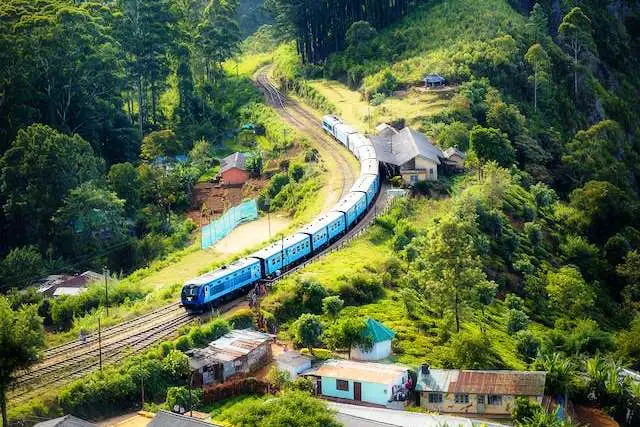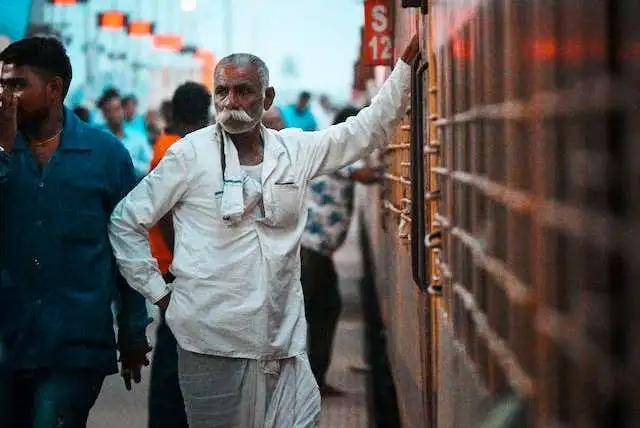Introduction:
Should Indian railways be privatised? Is the debate going on these days in different sections of society? Indian railways are considered the lifeline of our country. But due to this, it connects India from the north to the south and from the east to the west. Every section of Indian society uses Indian railways. For a long time, Indian railways have been doing great service to our nation.

But there are some areas where there is an urgent need for improvement in railways:
- Like punctuality, most of the trains don’t run on time.
- The catering service for railways is extremely poor. It charges a high amount, and the quality of the food given is low.
- It’s difficult to get train tickets. We have to book the ticket 1-2 months in advance. The Tatkal service is also not fruitful, as most of the tickets are booked in seconds.
- Now and then, there are cases of accidents that take place on railways. So, safety is a major concern.
- Also, even after so many people are using Indian railways, it is at a loss.
Seeing the present condition of railways, some experts suggest that if we want to improve the quality of railways, they should be privatised. I also support the privatisation of Indian railways, but the ultimate control of regulation should be in the hands of the government.
Should Indian Railways be privatised? Yes
- Currently, we can find mismanagement in the form of dirty toilets and a lack of water supply. We can expect private companies to provide better amenities.
- If there are many companies, the quality of services will improve as a result of competition.
- Security is a big concern for railways. There are many cases of accidents that take place. Private players will bring better technology, which ultimately benefits passengers.

- The trains are generally not on time. So, generally, the public doesn’t trust railways for punctuality. We can expect that after privatisation, the trains will be punctual.
- Another issue is cleanliness; trains are not cleaned properly and regularly. Private companies will maintain cleanliness due to competition and will take care of these issues with proper management. The above arguments give clear views on the topic: should Indian railways be privatised or not?
Also Read: Should Tablets replace textbooks in schools?
Should Indian railways be privatised? No
- The primary goal of Indian railways is not to earn profit but to serve the people. Presently, Indian railways run even in those areas where there is a very small number of passengers. When private companies come, we cannot say that they will run in those unprofitable areas. As we see in the case of banks, most of the banks are generally found in urban areas due to their profit.
- Railways are opted for by all, be it the upper, middle-, or lower-income groups. After the privatisation, there may be frequent fare hikes, which will become difficult for lower-income groups.
- The railway is the largest employer in our country. There are chances that many people may lose jobs after the privatisation process. So, this gives a clear argument about should Indian railways be privatised or not.
Tejas Express:
Recently, one such experiment was done with Tejas Express. Tejas became the first train that was not operated by Indian railways. It is being operated by a semi-government organisation, the IRCTC. The services of Tejas were praised by many, including:
- The seating arrangements are like a plane, with entertainment facilities.
- There were flight attendants who were serving the passengers.
- Most importantly, Tejas gives the assurance of refunding money if the train is delayed.
So, now the government may start some more trains, which will be in the hands of private players.

Government view on privatisation:
- Some people are opposing the privatisation move of the government. The government is of the view that the track will always be Indian railways, and private trains will run in the same way as on government-made roads, where both private and public vehicles move.
- This way, the public will have more options. Presently, it is very difficult to get a reservation on the train. We have to reserve the seats months in advance. Although there is a Tatkal system on railways, it sold out in seconds.
- So, with more and more private trains, we will have more options to travel from one place to another.
Conclusion:
Should Indian railways be privatised? With the above arguments, we can say that privatisation will bring some positive changes in the efficiency of Indian railways, but if the government makes a firm decision to bring positive changes, there will be no need for privatisation. But this will require strong willpower from the government.
External Resources:
https://www.newslaundry.com/2021/03/18/why-privatising-indias-rail-network-is-a-bad-idea

